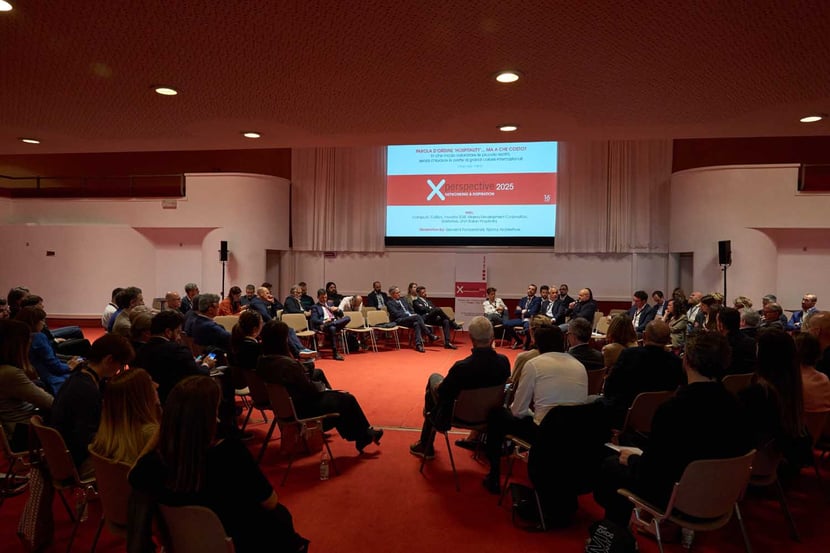Login
Registered users

The roundtable discussion titled “The Keyword is ‘Hospitality’… But at What Cost?”, held on Tuesday, May 6 in Venice during the Perspective EU 2025 forum, tackled the topic from multiple angles, engaging various Italian players active in the hospitality sector.
Participants included: CampusX, with Alessandra Reda, Colliers, with Monica Pedrini, Investire SGR, with Federico Velluti, Marina Development Corporation, with Anselmo De Titta, Starhotels S.p.A., with Fabrizio Gaggio, UNA Italian Hospitality, with Andrea Mattaini and Daniele Mereu. The discussion was moderated by Giovanni Franceschelli of Rizoma Architetture.

Gio Ponti described hospitality as a new form of inhabiting. The guest, therefore, becomes an inhabitant—an active participant seeking a form of hospitality that is more open to the city and more inclusive, moving beyond the traditional idea of the passive user. Today, hospitality has evolved to meet new needs, taking on hybrid forms ranging from hostels to bed & breakfasts, and adapting to diverse contexts.
The panel highlighted several critical issues currently affecting hospitality, including over-tourism, seasonality, and the redevelopment of abandoned or decaying buildings. A central theme was the relationship between cities and hospitality: a reflection on how citizens perceive and interact with this presence, emphasizing the importance of hospitality that integrates into the local social fabric. Hospitality projects must become an integral part of the city, respecting its identity and helping to create synergy between residents and visitors.
Hospitality, as a form of welcoming, should be understood as a concept of diversity, since every operator interprets and experiences it differently: some emphasize small structures, while others adopt varied approaches based on their expectations. Similarly, every traveler has unique needs, which require a personalized offering.

A shift in paradigm is leading hospitality today to adapt to the specific characteristics of each place. It is the operator who, by creating tailored experiences, defines the destination itself. In this model, the goal is no longer to find the location tourists want—but to create it, shaping flows and appeal to make the destination attractive year-round.
One possible solution is the development of destination neighborhoods, capable of maintaining vitality and interest even during off-peak periods, and of receptive regions that can build an ecosystem around hospitality and visitors.
In conclusion, it becomes essential to mend the relationship between hospitality and the city—fostering a stronger connection between guests and hosts, like fitting together the pieces of a puzzle, in order to encourage a harmonious and sustainable coexistence.
>>> Discover the inaugural Perspective Eu 2025 lecture by Marion Weiss and Michael Manfredi


>>> The Perspective EU 2025 forum in Venice was opened by the opening keynote by Weiss/Manfredi
Photography by Simone Scaravelli